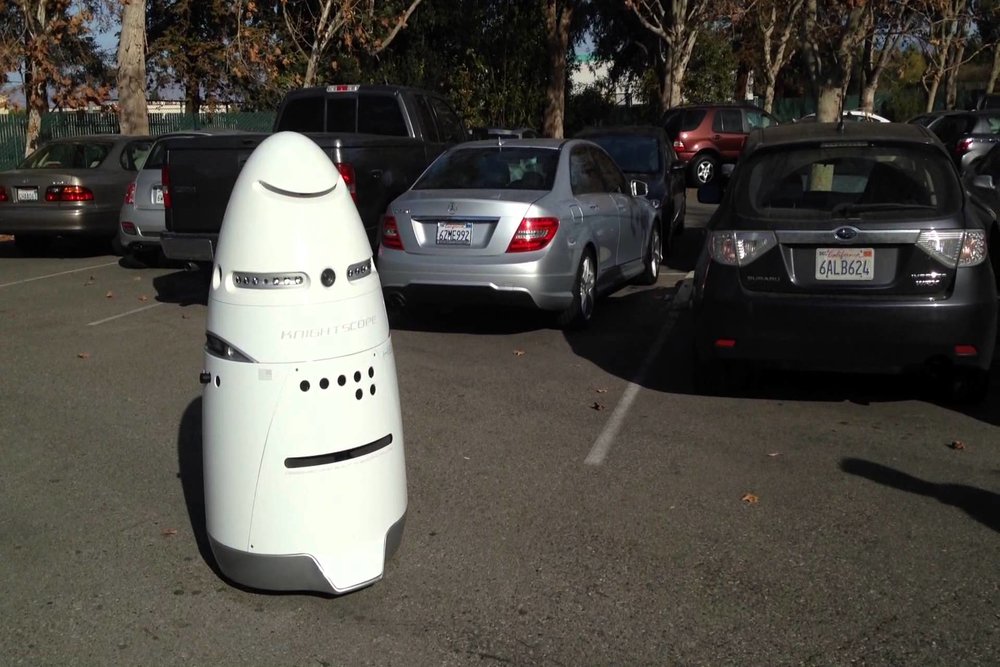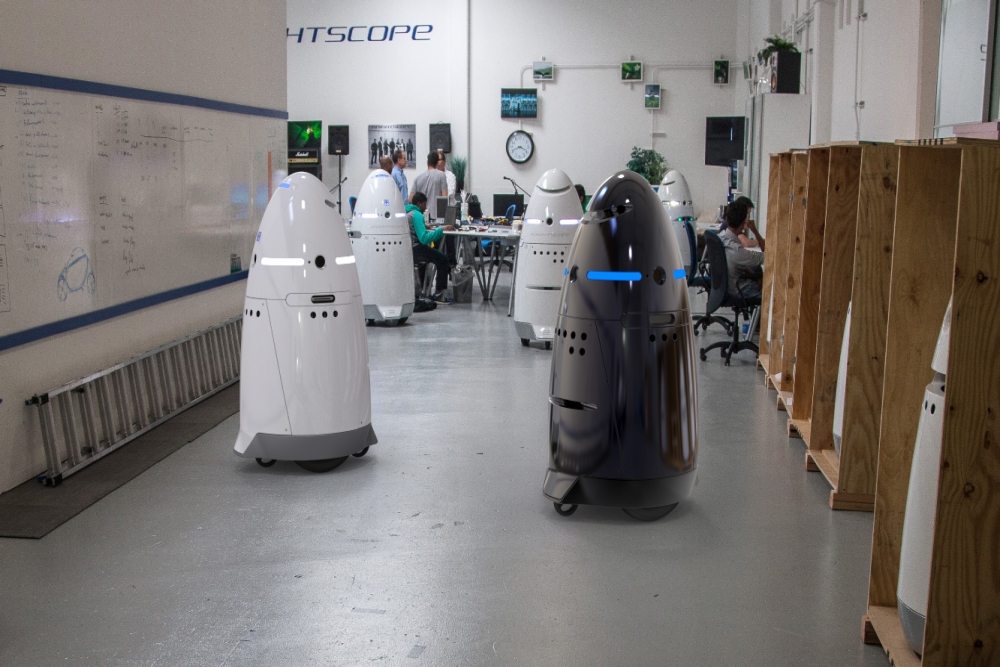The K5 is a 400-pound, 6-foot tall autonomous security robot that roves parking lot aisles, the hallways of office campuses, sports stadium foyers, and shopping malls on the prowl for suspicious activity. Looking something like a mix between a Dalek from Doctor Who and Eve from Wall-E, it packs sensors like a LIDAR (light detection and ranging) array and cameras that help it differentiate between a harmless passerby and potential criminal, and it feeds all that data to the cloud.
Stacy Stephens, a former police officer who co-founded the company in after the tragedy at Sandy Hook Elementary School in Newtown, Connecticut, described Knightscope’s robots as a compliment to human law enforcement. Rather than replace human police officers and private security guards, the robots — which Knightscope calls “fully autonomous security data machines” — fill in the blind spots.
Those areas where guards refuse to patrol. Knightscope’s robots have been deployed under dangerous bridges in San Francisco, crime-ridden public parking lots, and homeless encampments. One Knightschope client in southern California managed to bring break-ins to a halt, Stephen told Digital Trends.
The company’s secret sauce is sensors. Lots of them. Knightscope’s robots pack infrared cameras sharp enough to make out license plates, and onboard wireless that identifies smartphones down to the MAC and IP addresses. On the backend, Knightscope can blacklist individual phones, faces, or even cars. When an intruder is detected, the company alerts its clients.
Knightscope stores all that data for posterity, too, for as long as clients wish — in some cases up to 15 years. An individual robot uploads more than 90 terabytes of data a year via Wi-Fi and cellular, Stephen said.
The robots, which come in two models — one for indoor use and one for outdoor use — are available on a subscription basis. Knightscope’s plans start at about $7 an hour for 24/7 surveillance (about $62,000 annually), and include monthly software updates, maintenance, and remote assistance from the company’s 2,000 technicians.
Knightscope sees potential for its robots just about everywhere. It counts Microsoft, Juniper Networks, the Sacramento Kings, and NBC Universal among its current clients. This year, it expects to sign contracts with a mall in New York, an electric utility in Florida, a monitoring and response center in Texas, a pharmaceutical company and mall in Massachusetts, and a corporate campus in California.
In total, Knightscope plans to service 17 clients in 16 cities across five states by the end of 2017.
It’s filed a mini-IPO earlier this year to help achieve that objective. So far, it’s raised $15 million, and aims to raise an additional $20 million in the near future.




